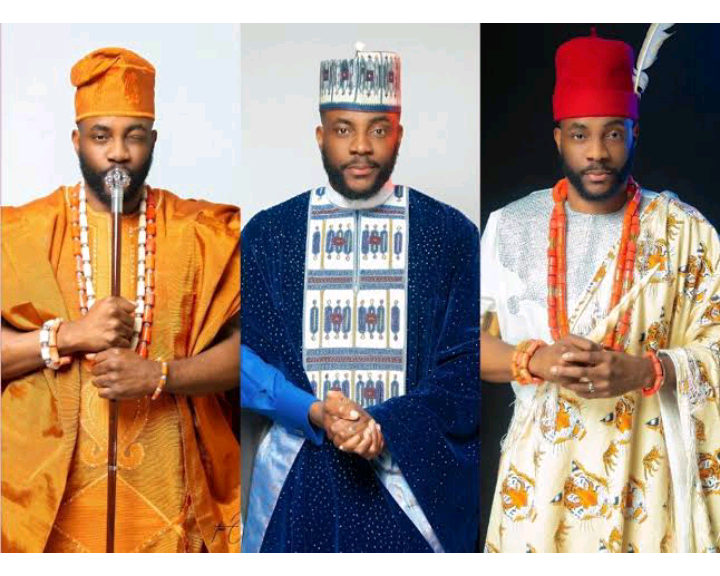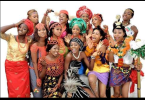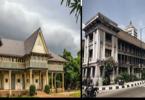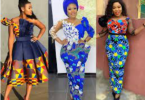The influence of Nigerian culture on global fashion trends, particularly within the last one decade thereabout, is astonishing. It contrasts sharply with the seemingly languid advancement of the nation towards full democratic and economic self-determination. Nigeria seems to be scoring high on cultural impact on the globe – rather than on the expected technological and political influence.
At the turn of the 21st Century, it seemed Nigeria desperately struggled to catch up with the rest of the world. The Y2K revolution, and striving to meet the Millenium goals, are reminders of that struggle.
How the Internet Propelled Nigerian Culture to Global Fandom
Nigeria could be branded as ‘upcoming’ in terms of technological or economic advancement – the nation is evolving, not yet there. With inadequate infrastructural development, security issues, shaky governance and economic headaches to deal with, there is much room for improvement.
But the internet has exposed Nigerian citizens to numerous global opportunities, collaboration, and closer ties with the diaspora. Internet and telecommunication usage and adoption rates have sharply skyrocketed. Along with that came the expected yearning – particularly amongst the youths, for an improved quality of life.
It is clearly perceptible in the new wave to use and explore social media and online tools. More Nigerians now scramble to use the internet for personal exposure, financial gains, learning and global networking by Nigerians. And nowhere has this trend been fully exploited compared to the Arts and fashion industries.
Such undeniable influences could be seen in the way Nigerian music, literature, film, and fashion are making waves across Africa and beyond. And now many Nigerians on social media and mass media seem to be joining the train.
Nigerian Culture to the World: The Ambassadors
Nigeria has over 300 ethnic groups, over 500 languages, and a secular society that fairly accommodates different religions. Being one of the most culturally diverse nations on the Earth naturally comes with its own headaches – tribal sentiments for instance. Nevertheless, Nigerian culture is so enthusiastically promoted by several rising profiles that took the world by storm.
Literature Writers
First were the literary geniuses – the likes of Chinua Achebe, Wole Soyinka, Fẹmi Osofisan and now Chimamanda Adichie. These exceptional talents and their written works became so famous in their clear depictions of Nigerian culture and belief systems. They purportedly have a large congregation of readers in the USA and Europe. Some of their works have been translated to other languages as well.
Coupled with the fact that the typical Nigerian would not relinquish their traditional values in the face of westernization or colonial influence. Television and movie adaptations of these famous literary works further helped to do justice to this sworn credo. And to make these plays and films more memorable – is the traditional dressing. Oh yes, Nigerian cultural dressing and scenery in all its glory.
Screen adaptations of Things Fall Apart, Death and the King’s Horseman, and Women of Ọwu for instance, have been legendary. They exposed tribal and internal struggles within Nigerian societies, alongside native wisdom and ideologies. Additionally, they demonstrated our pride in local beauty, art and fashion in its raw form. These works clearly showed the depth of intelligence at work in our traditional societies. And that Africa is not the ‘dark continent’ without vision, aesthetics or common sense, as wrongly assumed in the Western world.
Nigerian Music
Thanks to Fela Anikulapo-Kuti and his promotion of the Afrobeat genre in his lifetime. His creative fusion of traditional dance, chant, colorful costumes and rhythms with Western jazz and funk is revolutionary. He boldly promoted Nigerian culture through his craft and dressing at every opportunity – albeit with Pidgin English for greater emphasis. Additionally, he used his music to teach and admonish the sheepish nature of the Nigerian folk of his time. He challenged the status quo, and a corrupt government.
However, it would be wrong not to acknowledge other visionary musicians of his era. Traditional Fuji, Juju, Apala, Highlife and native song proponents who toured the world. And they bombarded global music fans with energetic, exciting Nigerian music and traditional attires, along with local proverbs and wisdom. Many Nigerians in diaspora openly played these songs and videos to the hearing and admiration of their foreign neighbours.
Artists namely King Sunny Ade, Ebenezer Obey, Ayinde Barrister, Kollington Ayinla, late IK Dairo, Bright Chimezie, Osita Osadebe, Rex Lawson, Oliver dé Coque, and many more. They laid the foundation of the modern music revolution in Nigeria. And strong elements of their traditional song styles are now incorporated into modern Nigerian songs.
Without doubt, the modern music artists who took after these pioneers have achieved far more than their music godfathers ever did. Wizkid, Burna Boy, Tiwa Savage, Davido, Kizz Daniel, 2Face, Olamide, Yemi Alade and several others are at the forefront. They have been breaking records with modern Nigerian music across the globe, topping the charts and signing international record deals.
And a good number of them dress in one form of local Nigerian attire or another for their shows and music videos. They do so at least from time to time, if not always. One cannot but admire the interesting cultural fashion taste of Yemi Alade, Fẹmi and Seun Kuti, Omawumi, Waje, Flavour, Ashake, and 2Face.
The global fandom of Nigerian music artists in terms of numbers, is now bursting at the seams. Huge thanks to the help offered by social media, music streaming platforms, and members of the Nigerian diaspora community. Afrobeat alone has revolutionized music across the globe. Now one could easily notice elements of Afrobeat dance, music and Nigerian cultural dressing in music videos produced by some foreign music artists. Artists such as Beyonce and Talking Heads, have borrowed some elements of Afrobeat in their songs.
Nigerian Fashion Magazines and Designers
Luxury lifestyle and fashion magazines in Nigeria got some attention on the front page of New York Times not too long ago. It featured four top Nigerian fashion magazines: Today’s Woman, Genevieve, Glam Africa, and Exquisite magazine. The commentary, run by Adenike Olanrewaju, explored the emergence of major fashion and lifestyle magazines in Nigeria. It also highlighted how the Western world is showing increased interest in Nigerian culture – very much including their fashion.
The influence of Nigerian culture through fashion has gone quite far into Western art. Visual artists and fashion designers in Europe and North America have lately been incorporating native Nigerian patterns and materials into their works. As well as other African designs. African materials such as Adire, Ankara, Batik, and Aso Oke; leatherworks; skilful beadwork; and African hairstyles are getting increased global patronage.
Not the least is the large variety of exceptional tailoring styles and embroidery from Nigeria. The different styles of Nigerian head covering: head ties, fascinators, hats, caps and turbans is another wonder. Thus the amazing and evolving creativity of Nigerian fashion designers can no longer be hidden from the rest of the world. Thanks to Nigerian lifestyle fashion magazines and social media – are making sure of that.
Nigerian Film Industry
Nigerian culture in influencing global fashion trends, must surely mention Nollywood. Nollywood – the Nigerian film industry, has produced so many films with strong depictions of Nigerian culture, scenery and dressing. In fact, traditional storytelling in Nigerian films, screenplays and dramas is incomplete without the native dressing and backdrop. Otherwise it may likely appear uninteresting.
Thus Nollywood has mightily influenced the global audience with Nigerian culture and fashion, in creating an appeal for them. The beadwork, native makeup, hair styles, traditional clothes, tailoring styles, and language accents on display are unbeatable. In fact, the vast majority of Nigerian films would usually showcase traditional Nigerian dressing alongside modern wears on the set. The Wedding Party; Chief Daddy; Battle on Bukka Street; Ije; several Yoruba, Hausa, Igbo, and Niger-Delta themed films are outstanding examples.
To further cement that appeal, Nollywood festivals are now being held in Europe. And this is apart from enhanced distribution channels that have helped Nollywood films to reach far and wide. Across Africa and in far-away Europe, Asia and the US, Nollywood films are now being watched. Thus giving further exposure to our culture and traditional fashion. The Afro-American community in the US and Caribbean, for instance, are known to indulge in African fashion styles – including Nigerian fashion.
Nigerian Celebrities and Public Figures
We know a lot of die-hard traditional attire power dressers who are Nigerian political figures, celebrities, and global personalities. Dr. Ngozi Okonjo-Iweala, an executive of the World Bank is a famous example. Virtually all members of the Nigerian government at the federal, state and local levels indulge in wearing Nigerian cultural attire very often. Even at formal occasions within and outside the country. Nigerians are so immensely proud of their culture, they could take it anywhere possible with them. And the whole world can see it plainly.
Thus the expected influence Nigeria has not wielded yet on the global political and economic scene is happening through other channels. Particularly through cultural tourism, Arts and fashion.








